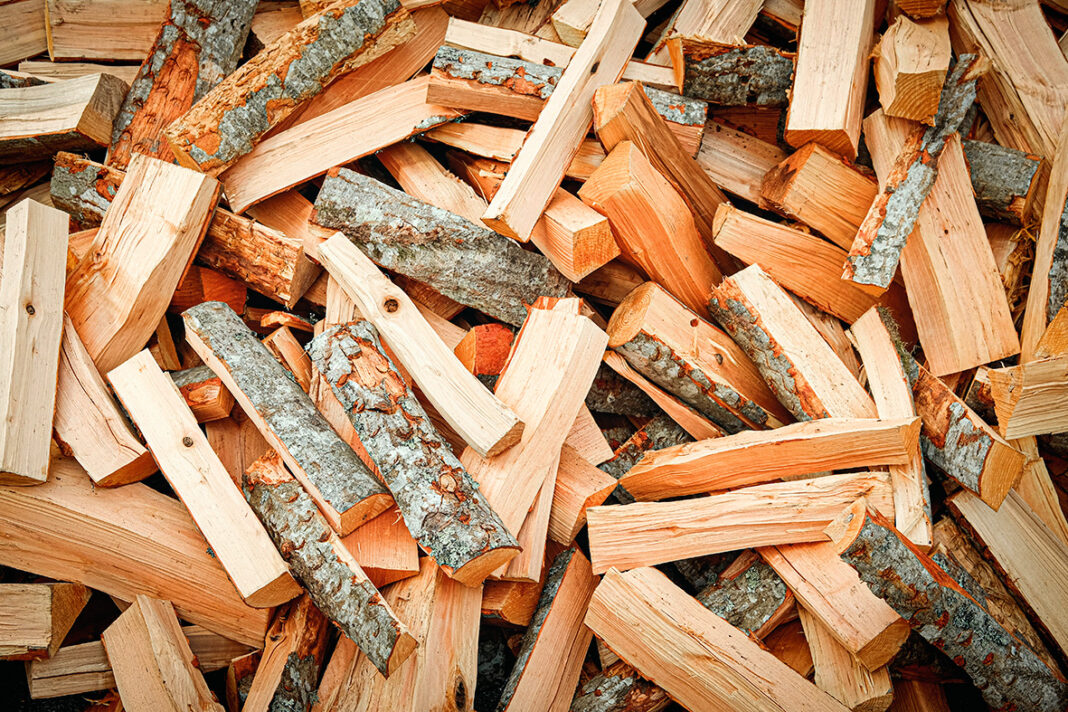Raivis Šveicars, “Latvijas Avīze”
Pellets, wood and briquettes will be banned! Such was the interpretation of the amendments to the Energy Law by various individuals in Latvia, including representatives of political parties – Tālis Linkaits from Jaunā konservatīvā partija, Edmunds Zivtiņš and Ramona Petraviča from Latvija pirmajā vietā, etc. – on social networks last week, who believe that the European Union will ban heating with wood and its products in Latvia, a country rich in forests. Some media outlets also made headlines, based on social media posts, saying that “it is planned to ban wood and pellet heating”.
On Thursday, Saeima considered amendments to the Energy Law prepared by the Ministry of Climate and Energy in the 2nd reading, requiring residents to use an efficient source of renewable energy or emission-free heating technologies (e.g., heat pump, solar thermal collector), applying this requirement to new single-apartment houses or to the renovation process of such houses if the heating system of the house is also being renewed. It will also be possible to combine heating types, for example by using a heat pump and also a wood-burning appliance.
What could be a problem? Installing new natural gas boilers and coal heating. However, the Ministry of Climate and Energy could not answer how many new-build or renovation projects in Latvia in 2023 chose gas or coal-fired boilers as the heating method.
The Ministry notes that the amendments are intended to implement the requirements of the EU Directive, which aim to promote security of supply, improve administrative processes, and encourage the production of thermal energy from efficient, and cost-effective sources.
The draft Energy Law envisages that municipalities, when organising heat supply in their territory, will have the right to determine, in their binding regulations, whether residents are to connect to centralised heating, use the above-mentioned heat supply technologies or set any restrictions. For example, the Riga City Council has determined that from 1 January 2031, the installation of new individual, and local heating appliances using any type of fossil fuel will be prohibited in all areas of the city.
Admittedly, at first it might seem that wood, pellets and briquettes do not really belong on the list of zero-emission technologies, but the amendments make it clear that residents will have a choice between renewable energy resources and zero-emission technologies. Either by careless reading and misinterpretation of the amendments, or by doing it deliberately, the scaremongers have failed to notice or do not know that biomass (wood, pellets, briquettes) is a renewable energy resource, including the fact that biomass is enshrined in the 2023 European Union Directive in this way.
The reporter for the amendments, Andris Kulbergs from Apvienotais saraksts, tried to explain the amendments to those members of the Saeima who had fallen for the disinformation, but one of the people’s representatives either pretended not to hear anything or was unable to admit his mistake. Independent member of the Saeima, Aleksandrs Kiršteins, called for a vote against Clause 48 of the amendment, once again implying that biomass fuel sources would be banned. Kiršteins even managed to mention peat in his monologue, even though peat is not actually used as a heating source in Latvia (0.5% of all peat extracted).
Kiršteins stubbornly tried to explain that wood and pellets would be banned anyway, because biomass cannot be burned without producing emissions. Indeed, biomass does produce emissions, but as already mentioned, the member of the Saeima is apparently unaware that biomass is a renewable resource. Many people forget that trees absorb almost as much CO2 by photosynthesis as they produce by combustion, which means that biomass can be considered a climate-neutral heating source.
The other member of the Saeima who briefly intervened in the debate, Edmunds Cepurītis from Progresīvie, pointed out that it is the responsibility of members to familiarise themselves with the specific proposals. “First, restrictions are mentioned in relation to the use of various biomass fuels, but even if that is the case, then, secondly, this particular clause of the law does not prohibit something but gives the right to municipalities to use one of these tools. Third, this particular proposal is a drafting amendment.”
The Ministry of Climate and Energy also said in a press release that households will be able to continue using pellets, briquettes and wood for heating.
Photo: Shutterstock / Latvijas Mediji

